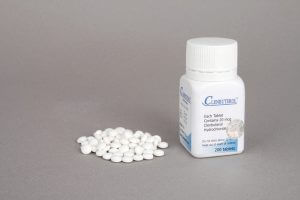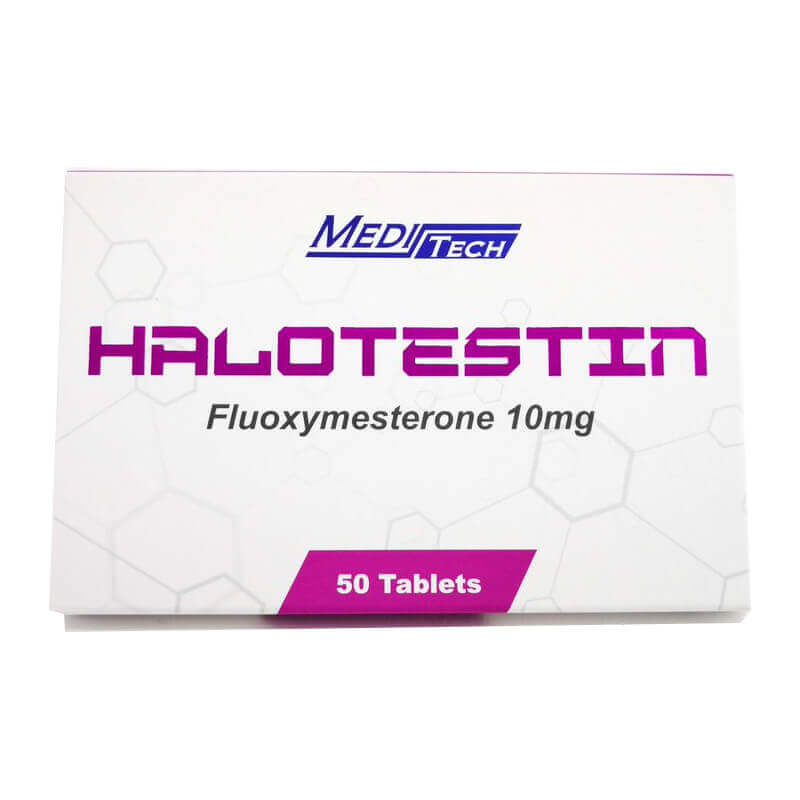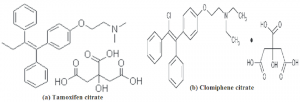
Clenbuterol hydrochloride – What makes Spiropent® 0,02 mg so popular
Clenbuterol is a substance coming from a group of compounds called beta2-agonists. Compounds belonging to this category can promote dilation of the bronchial muscles. However,

Administering steroids is one of the best ways to enhance your athletic performance. They can also help you increase your muscle size and strength. The best thing about these compounds is that they work faster than most other muscle boosting and performance-enhancing supplements available on the market. It makes anabolic steroids an ideal choice for bodybuilders looking to reach their bodybuilding goals in a short space of time.
However, steroid use can have a significant impact on various bodily functions. You must learn about them properly before you decide to supplement with steroids.
In today’s blog, we are going to discuss how steroid use can impact your cholesterol and HDL levels. We will talk about the most popular anabolic steroids on the market and their effects on cholesterol levels. We’ll also cover some of the recent research and studies that are done on this topic.
So, let’s dive right in.
Here’s what the anabolic steroids can do to your cholesterol levels:
Testosterone is one of the most popular and commonly used steroids that can help you reach your bodybuilding goals. You can find different Testosterone compounds on the market, including Testosterone Enanthate, Testosterone Cypionate, Testosterone Propionate, Testosterone Acetate, Testosterone Phenylpropionate, Testosterone Caproate, Testosterone Decanoate, and more. Testosterone is the best choice for beginners and first-time steroid users. Those who are looking to add size and strength can consider including Testosterone in their stack. It increases nitrogen retention. Testosterone also enhances endurance by causing an increase in red blood cell production. Administering Testosterone will also lead to improved recovery times. What’s more, Testosterone can increase IGF-1 output and inhibit glucocorticoids.
Injecting exogenous Testosterone into your body can impact your cardiovascular health negatively by reducing HDL cholesterol levels. However, low doses will have less impact on cholesterol. Another important thing you need to know here is that including AI in your stack can increase the HDL cholesterol suppression rate to a great extent.
You must change your lifestyle to deal with cardiovascular issues brought on by the combination of exogenous Testosterone and AI. You also need to maintain a proper diet that includes omega fatty acids, fish oil, etc. Also, try to avoid consuming saturated fats when possible.
Anavar is an oral steroid that both men and women can use safely. It’s a modified version of DHT or dihydrotestosterone. It mainly works by increasing nitrogen retention, decreasing SHBG, and inhibiting glucocorticoid hormones. This compound does not aromatize. So, you can use it to gain lean muscle mass. It will also help you protect lean muscle tissues during cutting phases. Supplementing with Anavar can help you get rid of your excess body fat fast. This compound can help you improve your athletic performance as well.
Anavar use can have a great effect on your cardiovascular health. It can suppress HDL levels and increase LDL cholesterol. Doses used for therapeutic purposes can suppress HDL cholesterol by almost 30%. For performance doses, on the other hand, the suppression rate could be as high as 50%. Doses used for performance enhancement purposes can cause an increase in LDL cholesterol levels by as much as 30%. So, if you are already suffering from any cholesterol issue, then you should avoid consuming Anavar. Even if you are healthy and have no cholesterol issues, you must maintain a proper diet and a healthy lifestyle when on an Anavar cycle. You should consider eating foods rich in omega fatty acids. Also, you are advised to avoid saturated fats as much as possible.
Deca Durabolin, also known as Nandrolone Decanoate, is an artificially produced compound classified as a 19-nortestosterone (19-nor) anabolic androgenic steroid. This steroid can enhance protein synthesis and increase IGF-1 output. It also inhibits glucocorticoid hormones. Using Deca Durabolin during off-season bulking phases can help you gain muscle mass and strength. It can also improve recovery times and muscular endurance.
Administering Deca Durabolin can cause a change in the HDL and LDL ratio. This steroid can suppress HDL cholesterol. It can have a stronger impact on HDL levels than Testosterone. This makes it crucial to maintain a healthy and cholesterol-friendly lifestyle when using Deca Durabolin. Eating foods that are rich in omega fatty acids combined with plenty of cardiovascular activity should help you deal with the issue. Attention to cholesterol levels becomes more important when you administer an AI or aromatase inhibitor during steroid use.

Dianabol is a potent anabolic androgenic steroid that can help you achieve whatever bodybuilding goals you have set for yourself faster. Dianabol or Methandrostenolone is a structurally altered version of Testosterone, the primary male hormone. It can increase protein synthesis, nitrogen retention, and glycogenolysis. Bodybuilders and athletes usually use Dianabol during their mass building phases. You can experience significant gains in mass (15-20lbs in a few weeks) by using this steroid. It can also contribute to athletic performance enhancement.
Like many other anabolic steroids, Dianabol can have a negative impact on cholesterol. Dianabol can cause increases in LDL levels and a decrease in the HDL cholesterol level. Though the total cholesterol reading may remain in a healthy range, suppression of HDL cholesterol can cause serious health problems. You should do regular workouts and lead a healthy lifestyle when on a Dianabol cycle to deal with these issues. Also, your diet should include a lot of omega fatty acids. You are advised not to use Dianabol if your cholesterol level is too high.
Equipoise, also known as Boldenone Undecylenate, is a testosterone-derived anabolic steroid that you can use for the enhancement of your athletic performance. You can use this steroid during cutting phases. It will help you protect your lean muscle mass. It can also promote strength. What’s more, supplementing with Equipoise can increase your muscular endurance. Due to the structural alteration, Equipoise carries less estrogenic activity than Testosterone. However, estrogenic side effects like water retention and gynecomastia are possible with Equipoise use.
However, Equipoise causes much less cardiovascular strain than many anabolic steroids, especially oral ones. But it can still negatively impact the cholesterol level by suppressing HDL levels. Nevertheless, the cardiovascular side effects of Equipoise should be easy-to-control for most healthy adults.
A healthy lifestyle and proper diet are highly recommended when supplementing with Equipoise. You should also consider doing a lot of cardiovascular activity when using this steroid. These things should help you deal with the effects of Equipoise on cholesterol. Cholesterol management becomes extremely important when you consume AI or aromatase inhibitors during Equipoise use.

Halotestin or Fluoxymesterone is a powerful steroid that weightlifters, athletes, and fighters have been using for performance enhancement purposes for a long time. They use this steroid before a competition or contest to increase their strength and aggression. Halotestin use will help you push harder and for longer in the gym. This steroid can also help you achieve a well-defined and attractive physique. The best thing about Fluoxymesterone is that it doesn’t convert into estrogen.
Halotestin can impact your cardiovascular health. This steroid can cause a significant increase in LDL levels. It can also suppress HDL cholesterol significantly. Administering Halotestin can also lead to high blood pressure. What’s more, it can affect your triglyceride levels.
You should consume a diet rich in omega fatty acids when supplementing with Halotestin. Also, you should do cardiovascular activities and avoid consuming simple sugars and saturated fats when using this steroid. You can also use antioxidant supplements that promote healthy cholesterol levels.
People who are suffering from high blood pressure or cardiovascular disease are advised to avoid this steroid.
Masteron or Drostanolone Propionate is a DHT-derived anabolic steroid that can help you get lean. Most bodybuilders and athletes use this steroid before a contest or competition. It can give you a more defined look by reducing your excess body fat. Masteron can also increase strength levels. What’s more, you will experience improved recovery times and endurance. The best thing is that Drostanolone Propionate doesn’t convert into estrogen. It means experiencing water retention and gynecomastia is impossible with Masteron use.
Masteron can affect your cardiovascular health by increasing LDL cholesterol levels and reducing HDL cholesterol. However, it causes less cardiovascular strain than C17-aa steroids. You need to focus on cholesterol management when supplementing with Masteron. Maintaining a healthy lifestyle and eating cholesterol-friendly foods are a must when on a Masteron cycle. Also, you must avoid consuming saturated fats. Patients with heart problems should not use this steroid.
Primobolan or Methenolone Acetate is an oral steroid that is extremely popular among performance enhancing athletes. The injectable version of this steroid is known as Primobolan Depot. Most bodybuilders, athletes, and other users use this steroid during cutting phases to protect their lean muscle tissues. This steroid can also boost strength and muscular endurance. It doesn’t aromatize. So, you don’t need to be worried about estrogenic side effects such as water retention and gynecomastia.
The effects of Primobolan on cholesterol are stronger than those of Testosterone, Trenbolone, and Nandrolone. It can increase LDL cholesterol and decrease HDL levels. To maintain healthy cholesterol levels, the first thing you need to do is to change your lifestyle. You need to include foods in your diet that are high in omega fatty acids. Also, avoid the consumption of saturated fats and do a lot of cardiovascular activities every day.

Sustanon-250 is a blend of four Testosterone esters: Testosterone Propionate, Testosterone Phenylpropionate, Testosterone Isocaproate, and Testosterone Decanoate. This mixture of Testosterone can help you build muscle mass by increasing protein synthesis and nitrogen retention. It also boosts red blood cell production and increases IGF-1 output. You can supplement with Sustanon-250 during both the bulking and cutting phases. With this steroid, you can burn the extra calories of your body more efficiently. However, Sustanon can cause a rise in estrogen levels in your body. Thus, you may experience gynecomastia and water retention during use.
In most cases, the use of Sustanon-250 has a little negative impact on cardiovascular health. It can cause HDL cholesterol suppression. Nevertheless, a noticeable increase in the suppression rate can be seen when used in combination with Aromatase Inhibitor. Study shows that administering a Testosterone dose of 250-600mg per week in combination with an AI can reduce HDL levels by as much as 20%. That’s why you are advised to make SERMs your first choice when it comes to dealing with estrogenic side effects. You must include a healthy diet plan and a lot of workouts in your routine to manage your cholesterol.
Trenbolone is a powerful anabolic steroid with incredible mass building effects. It works by increasing nitrogen retention and protein synthesis. This steroid increases red blood cell production. It means you will experience enhanced muscular endurance. Trenbolone use will also improve recovery times. However, Trenbolone doesn’t carry any estrogenic activity. Therefore, estrogen-related problems like gynecomastia and water retention are impossible with it.
Trenbolone is not a cholesterol-friendly steroid. It’s not a good choice for athletes and Sportsmen who rely on cardiovascular fitness to perform in a competition. However, if you are thinking of supplementing with Trenbolone, you should consider maintaining a healthy lifestyle and diet. It will help you manage the cardiovascular side effects of this steroid.
Winstrol or Stanozolol is a structurally altered version of dihydrotestosterone. The anabolic to androgenic ratio of Winstrol is 320:30. This steroid can decrease SHBG. It can help you experience lean muscle gains by increasing protein synthesis and nitrogen retention. It can also increase red blood cell production and inhibit glucocorticoid hormones. This steroid can help you enhance your athletic performance. The ideal time to use Winstrol is during cutting phases. It will preserve your lean tissues. What’s more, it can cause an increase in strength levels and endurance. It comes in both the oral and injectable forms. Also, Winstrol doesn’t carry an estrogenic nature.
Winstrol can cause cardiovascular strain. It reduces HDL cholesterol and increases LDL levels. However, it’s possible to manage healthy cholesterol levels when supplementing with Winstrol. For that, you should consume foods high in omega fatty acids. You should also consider taking fish oil every day.

Apart from anabolic steroids, there are some other compounds that bodybuilders and athletes often use. They include HGH, Aromatase Inhibitors, PCT medications, and more. In this section, we will discuss how these compounds can affect your cholesterol levels.
So, let’s get started.
Clenbuterol is a steroid-like compound with a strong anabolic effect. Due to its fat loss effects, many bodybuilders and athletes use this compound before a contest or competition to get lean.
Study (https://www.ncbi.nlm.nih.gov/
Clenbuterol use can cause cardiac hypertrophy. Nevertheless, responsible use and maintaining a healthy lifestyle can help you manage this side effect of Clenbuterol.
HGH is one of the most popular exogenous hormones that are well-tolerated by both men and women. It can help you achieve your bodybuilding and performance goals by helping promote muscle growth and lipolysis. HGH has been shown to cause an increase in the size and number of cells in skeletal muscle. Many bodybuilders and athletes use HGH in combination with anabolic steroids to get their desired results faster.
You can find several studies on the effects of a synthetic HGH hormone on cholesterol. According to some studies, HGH doesn’t bring about any changes in cholesterol and HDL levels. Other studies found that HGH can reduce LDL (Bad Cholesterol) levels. However, research suggests that exogenous HGH lowers blood levels of CRP, resulting in decreased risk of heart problems.
Arimidex is an aromatase inhibitor or AI that works by blocking the aromatase enzyme. It stimulates the release of LH and FSH. Steroid users often include Arimidex in their PCT plans.
Arimidex use can affect cholesterol and HDL levels. However, when used alone, it usually has a little impact on cholesterol. But when used in combination with anabolic androgenic steroids, it can impact cholesterol levels significantly. It can reduce HDL levels to a great extent. To deal with it, you must lead a healthier lifestyle. Along with consuming a lot of omega fatty acids, you should also incorporate plenty of cardiovascular activity into your daily routine.
So, one thing is clear that most of the steroid compounds available on the market will affect your cholesterol and HDL levels. However, it can be controlled by maintaining a proper diet and a healthy lifestyle. Also, you should follow the dosage instructions properly when supplementing with anabolic steroids.
Now, let’s take a look at some studies that will help you better understand the effects of steroids on cholesterol.

Here are some studies that do indicate that supplementing with anabolic androgenic steroids may affect your cholesterol and HDL levels:
In this study (https://www.ncbi.nlm.nih.gov/
Researchers conducted the study with 39 healthy male volunteers. They were given a single intramuscular dose of Testosterone Enanthate (500mg). The cholesterol levels before and two days after use were analyzed. The Western blotting technique was used to investigate the protein expression of HMGCR in blood. Also, In vitro studies were performed to know whether Testosterone regulates the mRNA expression of HMGCR.
The study found that the dose of Testosterone increased the total cholesterol level by 15% two days after administration. Also, Testosterone induced protein expression and the HMGCR mRNA.
This study (https://clinmedjournals.org/
The study was conducted with a bodybuilder who used steroids over a 5-year period repeatedly. At the beginning of the study, the lipids of the man were HDL-C of 0.4 mmol/L and LDL-C of 4.6 mmol/L. He discontinued steroid use for 10 weeks. After 10 weeks of discontinuation, his HDL cholesterol increased to 1.0 mmol/L. Also, his LDL cholesterol was decreased to normal at 3.3 mmol/L.
It clearly shows that the repeated usage of steroids is associated with an increased risk of cardiovascular disease. Supplementing with anabolic steroids can significantly increase LDL cholesterol and reduce HDL levels.
The main objectives of this study (https://www.ncbi.nlm.nih.gov/
Investigating the effects of two different regimens of steroid use on serum lipid and lipoproteins, and
The recovery of these variables after the discontinuation of the steroid.
In study 1, researchers assessed serum lipoproteins and lipids in 19 steroid users (self-administered anabolic androgenic steroids for eight or fourteen weeks) and 16 non-using volunteers. It was a non-blinded study.
In study 2, researchers studied the effects of intramuscular doses of Nandrolone Decanoate (200mg/week) (for eight weeks) on lipoproteins and lipids in sixteen bodybuilders.
In the first study, steroid use resulted in decreases in serum concentration of HDL cholesterol, HDL2-C, HDL3-C, and Apo-A1. However, Apo-B increased from 0.96 (0.13) to 1.32 (0.28) g/l and Serum Lp(a) declined from 189 (315) to 32 (63) U/l. After six weeks of discontinuation of AAS, the variables had still not returned to normal ranges.
In the second study, supplementing with Nandrolone Decanoate did not affect the variables mentioned above after four and eight weeks of intervention. Nevertheless, it was observed that Lp(a) concentrations were decreased significantly from 103 (68) to 65 (44) U/l in this group. In the placebo group, on the other hand, a smaller reduction was observed.
This study clearly shows that self-administering anabolic androgenic steroids simultaneously for eight or fourteen weeks can have profound unfavorable effects on lipids and lipoproteins. It can lead to an increased atherogenic lipid profile. These changes persist even after the discontinuation of the steroid, and normalization depends on the duration of use.
This study (https://www.mdpi.com/1010-
This study was conducted with thirty-two male Wistar rats. They were assigned to four equal groups. They were given either DECA (A group), taurine (T group), both DECA and taurine (AT group), or vehicle (C group). Researchers determined different variables that include low-density lipoprotein cholesterol (LDL-C), hepatic triglycerides (TGh), Plasma triglycerides (TG), high-density lipoprotein cholesterol (HDL-C), etc.
DECA elevated the Plasma triglycerides level in A group. In the AT group, the taurine association prevented the increase. DECA decreased HDL cholesterol in A group, whereas taurine tended to increase HDL levels in the AT group. In the A group, DECA decreased hepatic triglycerides (TGh). Taurine also decreased TGh in T and AT groups and tended to reduce NEFA in AT group vs. A group. However, Neither Nandrolone Decanoate nor taurine did influence TC and LDL-C levels.
This study shows that taurine can partially prevent the adverse effects brought on by DECA on lipid profile. It suggests a therapeutic potential of taurine in medical conditions associated with high levels of plasma androgens.
The aim of this study (https://www.ncbi.nlm.nih.gov/
This study was conducted with 20 male bodybuilders, 10 actively using steroid and 10 who did not use steroids ever. A lot of different variables, including serum lipid and hormone levels, arterial reactivity, carotid intima-media thickness (IMT), etc. were measured.
Administering androgenic anabolic steroids (AAS) significantly decreased high-density lipoprotein cholesterol, testosterone and gonadotrophin levels, and sex hormone-binding globulin. However, it increased LV mass and self-reported physical strength. Carotid IMT, arterial FMD, and GTN responses were similar in both the groups. It was found that the GTN responses were significantly lower and carotid IMT was significantly higher in all the subjects of the study.
Therefore, we can say that the use of anabolic steroids is not associated with notable abnormalities of arterial structure or function.

In this review (https://www.ncbi.nlm.nih.gov/
It was found in echocardiographic studies that supraphysiologic doses of steroids result in both morphologic and functional changes of the heart.
Supplementing with AAS causes a mild, but transient increase of blood pressure.
Anabolic steroids confer an enhanced pro-thrombotic state.
Steroid users often demonstrate unfavorable measurements of vascular reactivity.
Steroids cause changes in lipid metabolism. These changes include decreases in HDL levels and concomitant elevations in LDL cholesterol. It increases the risk of coronary artery disease.
It was an article published by ‘Harvard Health Publishing’ (https://www.health.harvard.
The cardiac risk factors associated with Testosterone use was discussed in this article. Here’s a brief of what we find in it:
Higher doses of androgens cause an increase in LDL levels and a decrease in HDL cholesterol. However, testosterone levels in men who receive androgen-deprivation therapy for prostate cancer reach nearly to zero. It leads to an increase in cholesterol levels. Doctors from the Mayo clinic reviewed 30 cases of Testosterone Replacement therapy. They did not find any significant effect of the treatment on cholesterol levels.
The fact that the low testosterone condition is associated with various cardiac risk factors doesn’t prove that low testosterone levels will cause heart disease. It was found that people who undergo androgen-deprivation therapy develop arteries that are abnormally stiff. Short-term treatment with Testosterone improves blood flow and vascular reactivity in people with atherosclerosis and normal testosterone levels.
A 2000 trial assessed 46 men with stable ischemic chest pain (angina) and low-normal blood testosterone levels. They were randomly assigned to a 12-week treatment with a placebo or a testosterone patch. The subjects had undergone a standard exercise test before and after treatment. Men who were assigned to treatment with testosterone displayed improved exercise tolerance after the treatment, compared to placebo-treated subjects. Nevertheless, the difference was slight.
In another study (2004), the results of treatment with testosterone injections and the results of treatment with placebo were compared. The study was conducted with 10 men with angina and low testosterone levels. It was found that one month of treatment improved exercise tolerance without changing HDL or LDL cholesterol levels.
There was another study (2004) conducted with 20 men with heart failure. After 12 weeks of treatment, it was found that men who were given testosterone were able to walk a longer distance on a treadmill. Also, the symptoms were reduced.
The objective of this study (https://www.ncbi.nlm.nih.gov/
This study was conducted with bodybuilders and powerlifters of similar testosterone levels, body fat, and age. Before androgen use, powerlifters had lower levels of HDL-C and HDL2-C than bodybuilders and runners. However, the levels of LDL-C were higher in bodybuilders than in bodybuilders and runners.
The use of androgen decreased both HDL-C and HDL2-C levels. It also increased the values of LDL cholesterol and LDL-C/HDL-C ratios.
Consider going through other online resources to find more information regarding the effects of steroids on HDL and LDL cholesterol.

Clenbuterol is a substance coming from a group of compounds called beta2-agonists. Compounds belonging to this category can promote dilation of the bronchial muscles. However,

Antiestrogens are a class of drugs that prevent estrogens from mediating their biological effects in the body. They are also known as estrogen antagonists or

There are many potential side effects of taking steroids, but steroid acne is one of the most obvious ones. Acne is generally an inflammation of
© 2023 All Rights Reserved